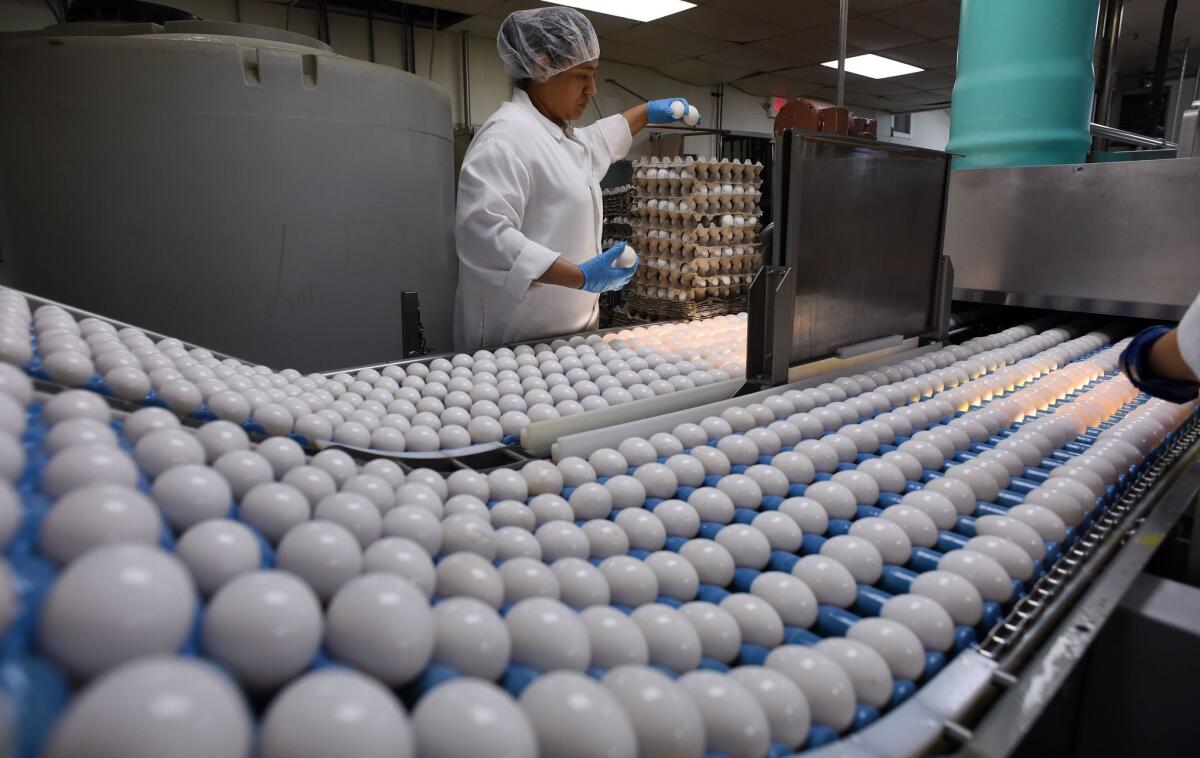Here’s why you have to refrigerate eggs in the U.S. but not in Europe

Europeans store their eggs at room temperature, while Americans refrigerate them. This is something that inspires some American tourists on their return home to adapt a more Continental attitude to the storage of eggs. Bad idea.
Though keeping eggs at room temperature is a perfectly good idea in Europe, because of differences in production practices, it can be very dangerous in the U.S.
The reason comes down to how we treat one simple, very insidious little bug, salmonella, which can cause extreme digestive distress and even prove fatal. Salmonella can be introduced in two ways -- from outside the egg (as a result of contact with organic matter such as chicken manure) and from within (from the hen to the egg before it has been laid).
According to the U.S. Department of Agriculture, there are more than 140,000 cases of salmonella poisoning from eggs in the United States every year. It is so prevalent that it has been called a “national epidemic.” And when eggs are left at room temperature, salmonella can multiply quite rapidly, reaching dangerous levels within a matter of weeks.
American egg producers focus on preventing contamination from the outside, so they are required by the USDA to thoroughly wash the eggs before they go to market. They’re rinsed in hot water, dried and sprayed with a chlorine mist almost as soon as they’re laid.
Europeans take a different approach. In the United Kingdom, for example, producers instead vaccinate laying hens to prevent the transmission of salmonella. They then rely on a thin, naturally occurring coating called the cuticle, to prevent any contamination from the outside of the shell penetrating to the egg.
British authorities actually discourage refrigerating eggs on the theory that chilling and then warming could create condensation, which would allow salmonella to penetrate the shell.
In the U.S., this cuticle is removed during washing and even though some producers replace it with a light synthetic coating, regulations still require refrigeration.
We may gradually be moving in the European direction, though. Immunization against salmonella has dramatically reduced the number of cases in the United Kingdom in 20 years, and after a particularly nasty salmonella outbreak in 2010, more American egg producers are starting to do this.
And, of course, there are no regulations regarding eggs produced by backyard flocks.
In the meantime, is there any harm in refrigerating eggs? Not really. There are those who argue that refrigeration thins the white. And certainly, storing eggs in a closed refrigerator along with strong-scented foods for too long will result in them picking up flavors.
Are you a food geek? Follow me on Twitter @russ_parsons1
More to Read
Eat your way across L.A.
Get our weekly Tasting Notes newsletter for reviews, news and more.
You may occasionally receive promotional content from the Los Angeles Times.







